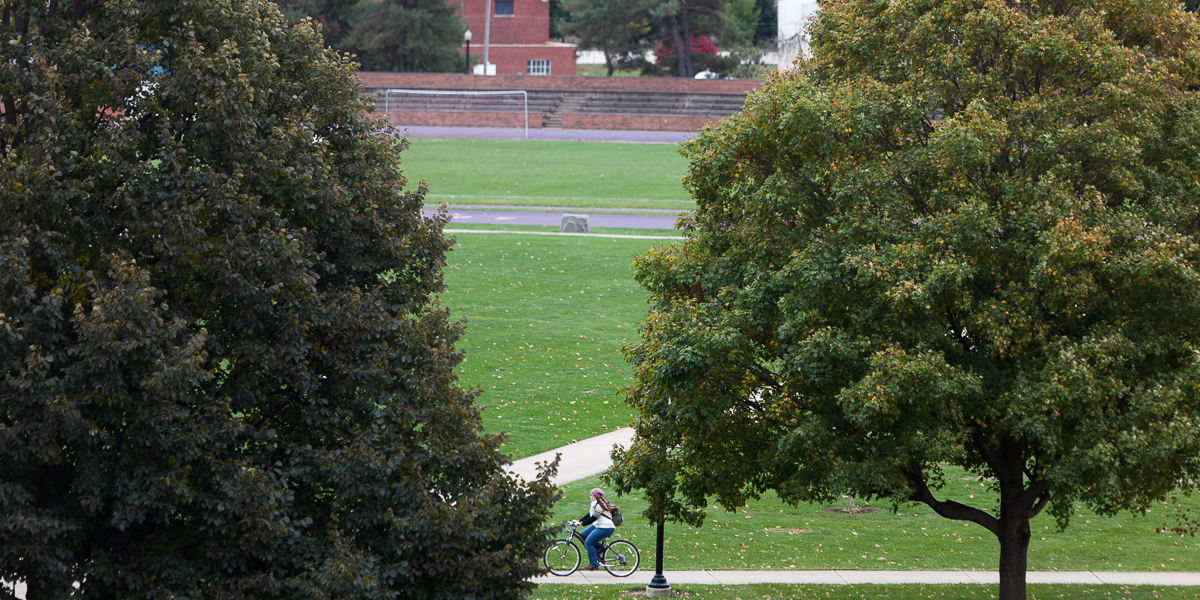

To find sustainable solutions.
Venture Boldly

Explore other offices & services
Career Success, Bastian Family Center for
College Engagement, Office of Advancement
Community Service, Mark & Jeannette Kleine Center for
Disability Support Services, Office of
Global Studies, Eleanor Stellyes Center for
Government & Community Relations, Office of
Immigration & International Travel Communications
Information Technology Services
Institutional Research, Office of
International Student Services, Office of
Knox Advisory Committee on Socially Responsible Investing
Research & Advanced Study, Gerald & Carol Vovis Center for
Student Development, Division of
Student Financial Services, Office of
Office of Student Financial Services
2 East South Street
Galesburg, IL 61401

If an incomplete grade is approved, the student normally has four weeks from the last day of exams to complete the work. An incomplete grade may delay review by the Academic Standing Committee. Such a delay may result in probationary status or dismissal even though the Committee's action has to be taken after the start of the next term. If a student who has begun a new term has received any federal and/or state financial aid to meet the new term's educational costs and is dismissed by the Academic Standing Committee, all federal and/or state aid provided for the new term will be recovered from the student. The student's financial aid budget and financial need will not be adjusted due to any additional costs incurred because of an incomplete grade, e.g., adjustment to living allowance because of extended stay on campus to complete work.
After the add/drop period, a student may only withdraw from a course. The student will receive a "W." A "W" does not count in grade indices. There is no adjustment in financial aid when a student withdraws from a course, and no adjustment is made in the tuition charged by the College. A student who withdraws from the College during a term should refer to the section Withdrawals and Refunds, Return of Title IV Funds Withdrawals are counted in the credit accumulation requirement except by successful petition to the Academic Standing Committee.
Only a few courses may be taken more than once for credit. The Catalog notes "may be repeated for credit" for such courses. If a student repeats any other course, only the credit earned the second time is counted toward graduation, but the record of the first taking remains on the student's transcript and counts in grade indices and toward the credit accumulation rule.
Credits earned prior to matriculation at Knox are evaluated for transfer by the Registrar. In general, liberal arts subjects in which grades of C or better were earned are accepted. No more than 18 credits are accepted from community colleges. No more than two credits may be earned through correspondence or Internet courses. Because of the residency requirement, no more than 22.5 transfer credits overall may be accepted. Transfer credits are not counted into grade indices, but they count toward the credit accumulation rule.
An optional three-week interim session is scheduled between Fall and Winter terms. Students selecting a course may enroll for up to one credit. Since December Break is not part of the regular academic year, is equivalent to less than half-time enrollment during a normal term, and is a discretionary choice by the student, no financial aid is available for this period. However, credits received during December Break are included in grade indices and count toward the credit accumulation rule.
Credit is given for remedial courses and they count toward the satisfactory academic progress requirements. Financial aid is available for these courses.
A maximum of 9 credits in all subjects may be earned through credit-by-examination through Advanced Placement or International Baccalaureate programs. Credits earned by examination are not counted into the grade indices, but they count toward the credit accumulation rule.
Knox does not offer correspondence or non-credit courses.